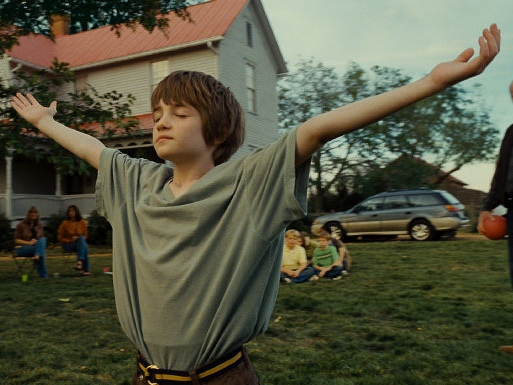Since breaking through with the screenplay for the wonderful yet under-seen quirky drama “What’s Eating Gilbert Grape?” in 1993, writer-director Peter Hedges has been responsible for some of the most warmly human dramedies in Hollywood.
Better yet, his films – which include the adaptation of Nick Hornby’s novel “About A Boy” (for which Hedges was nominated for an Oscar), as well as his own originals “Pieces of April,” and “Dan in Real Life” – celebrate the enduring strengths of and need for solid families.
Hedges outdoes himself with his latest film, the current Disney hit “The Odd Life of Timothy Green,” which he built from a clever story idea from the late musician Frank Zappa’s son Ahmet. The film follows a boy who mysteriously appears out of the ground after a rainstorm and becomes the son of a couple who desperately want children but can’t conceive. The film is a magical celebration of small-town America and traditional values like honesty and hard work, but most of all it’s a terrific reminder of the beauty of adoptions and the special connections that arise from them.
If you’re looking for a great, all-American film you can share with your family this holiday weekend, I couldn’t recommend another current film more highly. Hedges took the time to speak with Big Hollywood earlier this month and discuss his life and the meaning of his work.
“Family is paramount to me in my life, and my own comes first above everything, and that’s something universal that people can relate to,” says Hedges. “I never really intended it to become the overarching theme of my career, but it certainly worked out that way. So much of life’s dramas, good and bad, play out against family and so it’s really inspiring for any number of stories in all the fields I write in.”
Indeed, Hedges is not just a filmmaker but a popular author and playwright as well. He says that while he enjoys each of those creative arenas in different ways, filmmaking has become especially important to him because he is happy to help hundreds of people find work while each film is made.
With regards to “Odd Life,” Hedges explains that the reason Zappa’s story idea resonated with him so strongly was that he personally knew many people who had gone through the emotional rollercoaster of attempting to conceive and having to rely on adoption for a solution.
(The next paragraph has SPOILERS in the quote, so skip if you plan to see the film.)
“We didn’t know at first if we’d have Timothy stay with them forever and be adopted himself, or if his presence would suddenly enable them to have a child of their own, but that option seemed somewhat disrespectful of all those people we knew in the real world who don’t magically get to have a baby after experiencing these problems,” says Hedges. “So we decided the best and honest way to go, that wouldn’t violate the special story of this magical boy or making light of these problems, was to have them find another child through adoption and make that effort the framing of the film.”
As the son of a retired 87-year-old Episcopal minister “who still preaches sometimes,” and a mother who was a substance abuse counselor, Hedges was raised to look at his work interests as a potential mission field.
“That has remained important to me, not to make overtly religious movies and this doesn’t have a direct religious message, but to say something good and valuable about life is certainly an inspiration for me,” he explains.
But as he looked forward to some vacation time after his film’s promotional push was over, Hedges contemplated the struggle to make moral and human-scaled films in the current era of bigger and louder blockbusters. While he is frustrated with having to compete for studios’ attention against the likes of “Transformers” and “Expendables”-type films, Hedges remains grateful for what he’s accomplished thus far.
“It certainly is hard to make these kinds of films, because when the effort is to make as much money as possible, they’re going to want to go with what they know works – sequels, reboots, effects and merchandising,” says Hedges. “It’s rare that you can just tell a simple, great story anymore, and I’m very thankful to Disney that they saw how wonderful this story was and gave us the opportunity to go with it.”

COMMENTS
Please let us know if you're having issues with commenting.